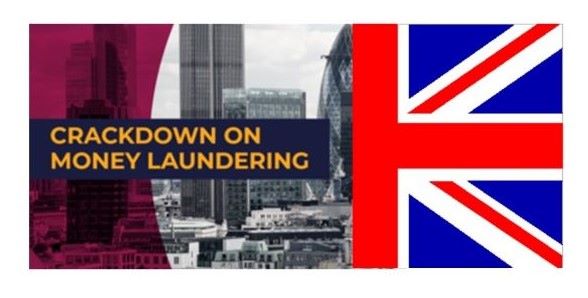An Opinion: The Economic Crime and Corporate Transparency Bill – A Paradigm Shift for Anti-Money Laundering in the UK
The UK government recently enacted the Economic Crime and Corporate Transparency (ECCT) bill as part of its commitment to tackling economic crime and enhancing corporate transparency. This builds on the UK Economic Crime act, which was introduced in 2022. The legislation, which received royal assent on October 26, 2023, aims to fortify the UK’s financial system by further addressing illegal activities including money laundering and all related predicate offences.
The ECCT introduces several key reforms that will significantly impact risk and compliance teams, particularly those in UK financial institutions. Here’s how:
1. Reforms to Companies House:
The ECCT seeks to enhance the transparency of beneficial ownership of UK companies and other legal entities by reforming the role of Companies House. Reforms will include identity verification for all registered company directors and those delivering documents to the Registrar. This is being done to improve the accuracy of data held within Companies House. The Act also empowers the Registrar of Companies House to manage company creation and maintain reliable data more actively. These reforms could necessitate risk and compliance teams to revise their due diligence procedures to align with the new requirements. It should also help provide teams with a more accurate and clearer picture of beneficial ownership and make shell company risk more apparent.
2. Limited Partnerships reforms:
The Act targets the misuse of limited partnerships, particularly Scottish limited partnerships, by tightening registration requirements, in turn targeted at increasing transparency. Risk and compliance teams will need to ensure their organizations comply with these new requirements, which could involve updating compliance frameworks and third-party risk assessment procedures.
3. Changes related to crypto assets:
The Bill equips law enforcement with additional powers to seize and recover crypto assets that are found to have links to criminal activities. This change could require risk and compliance teams to review both source of funds and source of wealth, supply chain due diligence, and transaction monitoring procedures to ensure risk associated with crypto assets are identified and categorized appropriately as part of a risk-based approach to due diligence.
4. Strengthened anti-money laundering powers:
The ECCT act enhances anti-money laundering (AML) powers, facilitating better information sharing on suspected money laundering risks and events, along with other predicate offences. Risk and compliance teams will be required to collaborate closely with law enforcement and potentially revise their information-sharing protocols to align with the changes.
New measures introduced to the ECCT:
The UK government made a few significant changes to the bill, refining it as it passed through both houses towards royal assent. The changes include an offence related to failure to prevent fraud, which holds institutions accountable if they profit from fraud; reforms to corporate criminal liability laws for economic crimes, which makes organizations liable for economic crimes committed under their authority. These additions to the bill underscore the importance of risk and compliance teams implementing robust fraud prevention procedures, reassessing their organizations’ liability risks, and enhancing communications and training to deliver a culture of compliance.
How Moody’s can help:
Moody’s Analytics provides AML and Know Your Customer (KYC) solutions to help organizations achieve compliance with AML regulations anywhere in the world.
We can adapt and automate risk management and compliance policies, building them around your organization’s risk appetite and employing a risk-based approach to anti-financial crime processes. And we can help reduce the manual effort needed for the customer and supplier due diligence in AML, anti-bribery and corruption, and fraud prevention strategies.
With integrations to Companies House and more than 25 other leading global individual and entity data sources, Moody’s compliance and third-party risk management solutions deliver process efficiency and enable corporate  transparency.
transparency.
Source: Moody’s Analytics


























